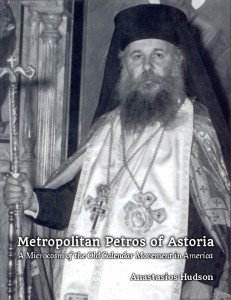The Prodigal Son
Dear Friends in Christ,
We’re in the midst of the Triodion now, the service book which provides us with hymns for the four preparatory weeks before Lent, and the weeks of Lent itself, ending with Pascha, the feast of the Resurrection of Christ. Two weeks ago, we celebrated the feast of the Publican and the Pharisee (Luke 18:10-14), where we learned to ask forgiveness of our sins in humility, and not boast of any good works we may have done. Last week, we celebrated the feast of the Prodigal Son (Luke 15:11-32), where we heard the Lord’s parable of a man who took off with his share of the inheritance, wasted it on bad living, and then came back humbled, only to be completely forgiven and restored. Sunday we recall the Last Judgment, and finally, the following Sunday, the expulsion of Adam and Even from Paradise, at which point Lent begins.
The Prodigal Son is a moving parable, which is applicable to us in so many ways. In the story, an ungrateful son demands his share of his inheritance—in effect, declaring he views his father as already dead—and takes off. He goes to a faraway land and blows it all on partying and sinful living. Running out of money, he gets a job tending pigs, which was certainly one of the lowest professions for a Jew. Realizing that even a hired person in his father’s estate would be treated better than he was being treated, this man returned and begged to be received just as a hired servant. The father, however, completely restored his son, and ordered a magnificent celebration.
We were all created in the image of God; this means that we were given a soul with free will. Just as God created Adam, God allowed Adam to participate in creation by naming the animals. Man has had an exulted state since this time. Man also had the likeness of God, in that he was holy. When man sinned, however, he became unlike God, he lost the likeness. He was still recognizable, though, as being in the image of God—this is something that can never be lost, no matter how bad a person is. God will always love a person, no matter how much the person sins.
When we sin, though, the likeness is lost, and we become depraved like the Prodigal Son. Some of us actually have left our homes, and gone and done wild things in our lives, causing ourselves and others spiritual and even physical harm. The whole time though, in our hearts, we often felt the love of God there. We knew that no matter where we were at, He was there, calling us back. Some of us are still estranged from God—maybe we even go to Church, but in our heart, we feel anger or resentment for something in the past, or we feel guilty about something that happened and figure that we just don’t deserve a second chance. But that’s not the message of the Prodigal Son. When this man returned home, his father wept. He ran to meet him, and instead of receiving him as a hired servant, he received him as a son! All that was required was the humility of the son. God can’t force us to return, but if we just take a deep breath, admit our faults, and take a step towards God, he will literally meet us “half-way.”
There are others of us who never had such a dramatic break from God. We have lived rather straight-laced things, being good citizens, going to Church, and saying our prayers. For us, we might wonder why the people who do leave and come back seem to get all the attention, while we’ve been quietly preparing the meals for the fellowship hour, or cleaning the Church, or reading our Bible every day our entire life. These were the same thoughts that the other son had in the parable. He was jealous that his brother, who had ruined everything, could come back and just reassume his position in the family. He asked his father why there was never a party in his honor, the entire time he was living there, faithfully serving the family. The father reminded his son that he was still in the better position, because he enjoyed the father’s company every day of his life; but the brother who was lost is now found. Those of us who have never really gone off the path should rejoice that we have walked in a relationship with God our entire lives, and pray that we will never cease. But our interior jealousy or other hidden passions can divide us from God just as much as someone that turns away from the Church altogether. We have to constantly remind ourselves not to wander away physically, and not to judge others or feel jealous at the attention they may receive. God knows the hidden thoughts of man, and we will all be judged fairly in the end.
As we embark upon another Lenten journey, let’s meditate on this parable strongly. The Church is here for us to return to, and it is in the Liturgy that we encounter the Father, who is willing to restore us. We may have squandered the blessings God has given us on material things, on frivolous things, on unspiritual pursuits, but the fork in the road is here. Let’s take the right turn, and head in to the Temple like the Publican, and be forgiven. Let’s take the right turn, and come back to our Father’s home, as did the Prodigal Son. We don’t have to be separated from God, whether by our actions or by our thoughts. Together, we can prepare for Pascha, the feast of the Resurrection, when all things are renewed!
In Christ,
Fr Anastasios


